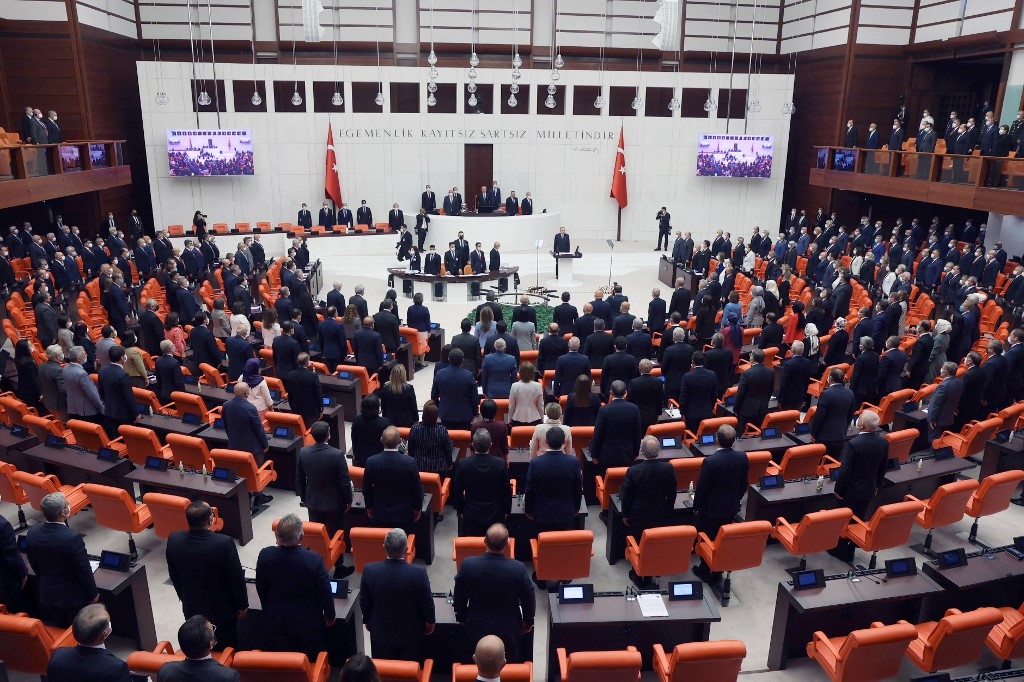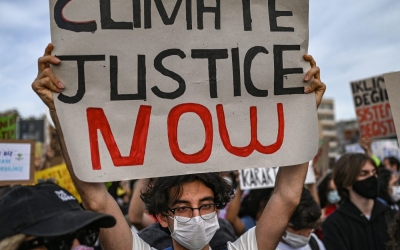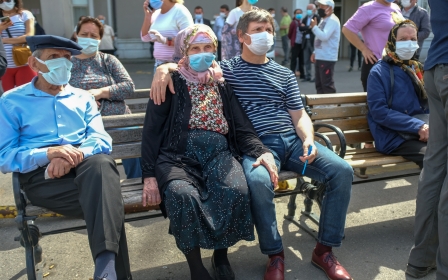Turkey ratifies Paris agreement ahead of climate summit

Turkey's parliament ratified the Paris climate agreement on Wednesday, making it the last G20 country to do so, after holding off for years because it saw itself as being unfairly categorised in the agreement.
The agreement on carbon emissions was ratified unanimously by the 353 parliament members present who voted, and comes weeks before the start of an international climate change summit in Glasgow, Scotland.
The Paris Agreement is a legally binding international treaty on climate change that has the goal of limiting an increase in global temperature to less than two degrees Celsius worldwide.
Turkey has been a signatory to the agreement since April 2016 but had not ratified the deal, arguing that it should not be considered a developed country as part of the agreement, as it is historically responsible for a very small share of carbon emissions.
Announcing that Ankara would ratify the deal at the United Nations General Assembly last month, President Tayyip Erdogan said countries that have a "historical responsibility" for climate change should make the most effort.
"Whoever made the most damage to nature, our air, our water, our soil, the earth; whoever savagely exploited natural resources needs to make the largest contribution to the fight against climate change," he said.
As of 2019, Turkey was the 16th highest carbon-emitting country in the world, with 0.4GT (metric gigatons) of emissions - compared to China (10GT), the United States (5.2GT) and India (2.6GT) in the top three spots.
Annex I vs developing nation
The climate accord relies on a separation of the world’s 197 states into different categories. One of these groups, called Annex II, consists of 24 well-off nations plus the European Union.
Non-Annex countries, which consist of developing nations, receive financial aid from Annex II countries, while Annex I countries do not receive any funding.
The UN Framework Convention on Climate Change (UNFCCC) currently lists Turkey in the Annex I group, described as industrialised countries.
A statement approved by parliament said, however, that Turkey was ratifying the deal as a developing nation and would implement it as long as it did not "harm its right to economic and social development".
Turkey also sent a proposal to the UNFCCC secretariat in Bonn, Germany to have its name removed from the Annex I list.
The proposal is on the provisional agenda for the COP26 Climate Change Conference to be held in Glasgow from 31 October to 12 November.
If Turkey is removed from the Annex I list of countries, it would be able to benefit from funding, insurance and technology transfers that would be provided as part of the agreement.
Middle East Eye delivers independent and unrivalled coverage and analysis of the Middle East, North Africa and beyond. To learn more about republishing this content and the associated fees, please fill out this form. More about MEE can be found here.





